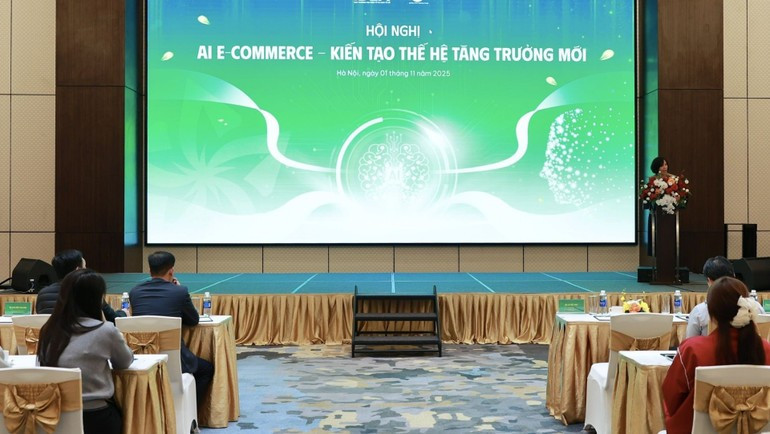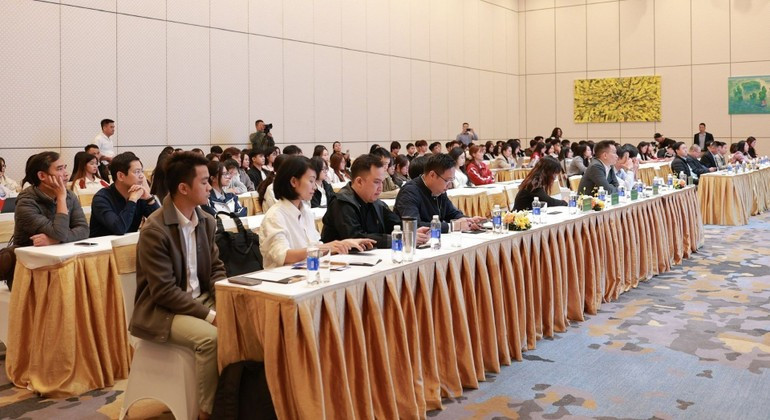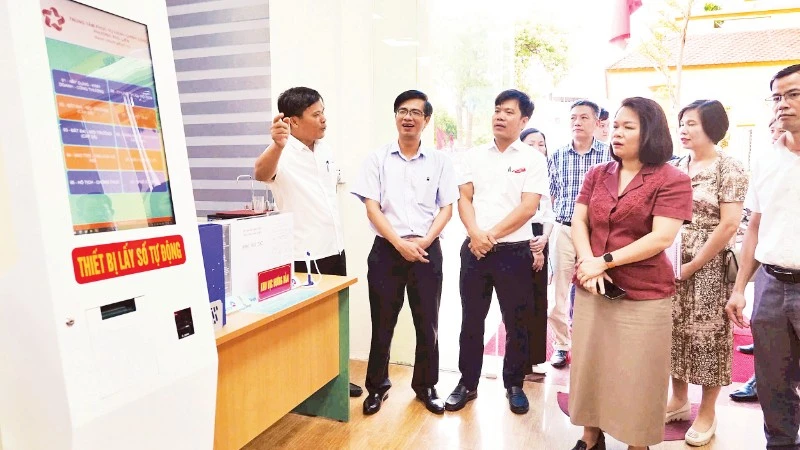The event is among activities within the framework of the first Autumn Fair 2025.
The conference served as a practical initiative to enhance awareness and promote the adoption of new solutions and trends in e-commerce, while accelerating the application of technology to develop digital commerce databases for Vietnamese enterprises.
In her opening remarks, Lai Viet Anh, Deputy Head of the Department of E-commerce and Digital Economy, emphasised that in the rapidly evolving digital economy, e-commerce has become a new growth pillar. However, to truly create a new generation of breakthrough growth, the decisive factors must include artificial intelligence (AI) and big data.
“AI is not just a tool—it is a core strategy that transforms vast amounts of data into competitive advantage, a key to achieving exponential growth in the digital era,” Lai Viet Anh affirmed.

At the conference, experts delivered in-depth presentations focusing on key topics such as: an overview of e-commerce development and trends in applying AI and Big Data; methods of transforming data into competitive advantage; optimising operations through AI automation; and the application of AI in e-commerce models, personalisation, marketing, and the development of AI virtual assistants.
Nguyen Huu Tuan, Director of the Centre for E-commerce and Digital Technology Development, remarked that Viet Nam’s e-commerce sector is entering its “golden phase”, as infrastructure, consumer behaviour, and the legal framework are all in place. He noted that “mobile commerce” is the current trend, with platforms such as Shopee, TikTok Shop, and Lazada focusing on mobile-based models that integrate “shoppertainment” — a blend of entertainment and shopping experiences.
AI, he stressed, is becoming the key driver of the next stage of e-commerce evolution. It is transforming not only consumer behaviour but the entire value chain—from sales and payments to customer care. Livestreams, video shopping, AR/VR experiences, and gamification are creating immersive, personalised shopping journeys.
over 60% of Vietnamese enterprises have adopted AI in customer care, marketing optimisation, product recommendation, and operational automation — paving the way for a new generation of growth in Viet Nam’s e-commerce sector in the era of data and artificial intelligence, he added.

Speaking about Metric.vn, one of the country’s leading e-commerce data analytics platforms, Do Thi Thanh Huong, Head of Market Research at Metric Data Science JSC, said its key strength lies in its ability to collect, consolidate, and analyse data in real time, delivering detailed reports on sales, products, and brands in just 30 seconds.
With a five-year data repository from major platforms such as Shopee, Lazada, TikTok Shop, and Tiki, Metric enables businesses to monitor market share dynamics, consumer trends, and optimise strategies across marketing, operations, and investment.
“According to Metric’s data, applying big data analytics can directly boost revenue by up to 54% and increase the likelihood of doubling profits by 25%. In the first nine months of 2025, Viet Nam’s e-commerce market reached over 300 trillion VND in sales. Data is becoming the ‘core foundation’ for businesses to secure their market position and pursue sustainable growth in the digital era,” Huong concluded.
















